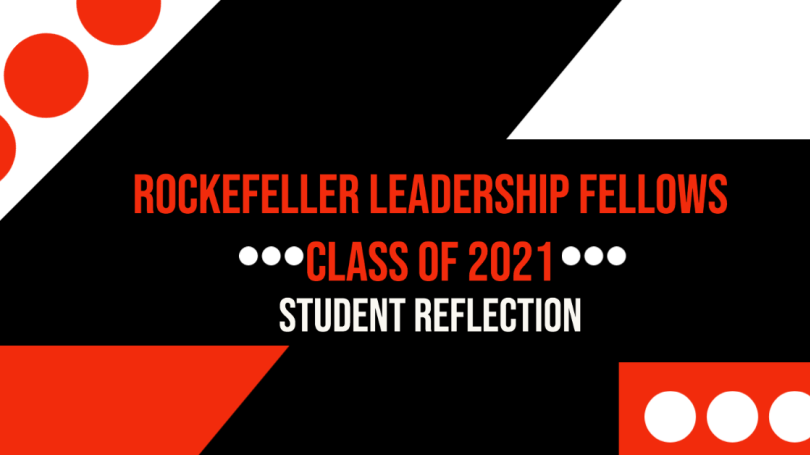
- Public Policy
- Leadership
- Funding
- News & Events
- About the Center
Back to Top Nav
Back to Top Nav
Back to Top Nav
Back to Top Nav
This quarter flew by, and it’s crazy to think that March 4 was our final Rockefeller Leadership Fellows session of the winter term. As the final RLF presenter of the quarter, Janae Harris discussed community and intentional leadership in a presentation titled “We’re All in This Together.” The presentation’s name is a timely one given the past year in which Americans have been politically polarized and physically separate. People lack access to the community spaces we once took for granted as a source of interpersonal bonding and local involvement. However, despite the multitude of different ways that the COVID-19 pandemic has impacted and isolated everyone, we all experience many levels of community: in our clubs, teams, and other extracurricular activities. We are also all part of the Dartmouth community, and we will all experience communities both in the places we will work and the places we will live.
Janae defined community-based leadership as “emergent leadership where community members become concerned about a topic and develop leadership within trying to make change.” She identified the five interrelated components of community-based leadership as the initiation and spread of interest, organization of sponsorship, goal setting and strategy formulation, recruitment, and strategy and plan implementation. Janae recognized communication skills as paramount to mobilizing community members around a common cause.
Because community-based leadership involves working with others, Janae stressed the importance of empathy in understanding and responding to others' reactions within the community. She also urged fellows to practice honesty and to form authentic relationships with other community members. Authenticity, honesty, and empathy compound upon each other to form the final essential skill: intentionality. Leaders must recognize that the issues they will address have implications that will impact (sometimes profoundly) the daily lives of other community members.
Good community-based leadership benefits from empathy and integrity because leaders’ actions ultimately shape their communities. Without authenticity, honesty, and empathy, leaders will feel distanced from the consequences of their efforts on their communities at large. Community leaders see the people they help on a day-to-day basis. By taking the time and energy to understand different points of view authentically, they may better address concerns and strengthen community bonds. Through effective community leadership and successfully mobilizing peers around a common cause, leaders can see tangible results.
Thank you, Janae, for elucidating community-based leadership!
-Written by Will Dickerman, Class of 2021 Rockefeller Leadership Fellow
As Rockefeller Leadership Fellows, seniors gain a better understanding of the qualities and responsibilities expected of leaders. As Fellows take part in the workshops, discussions, and team-building exercises, they examine their skills, qualities, and attributes as leaders and analyze how these influence teamwork and achieving goals.